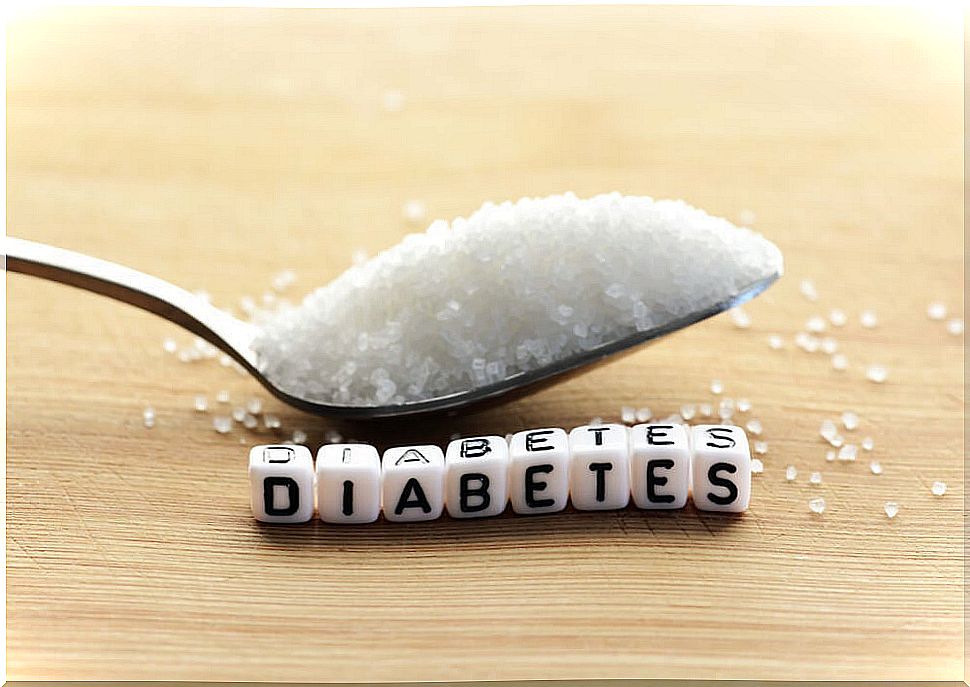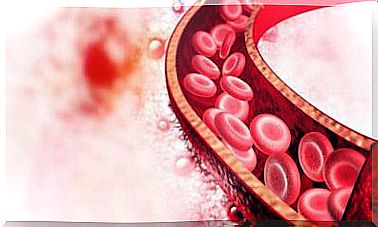Considerations Around How To Control Blood Sugar
Diabetes is a chronic disease in which there is an inadequate absorption of sugar by the body’s tissues. This causes it to rise in the blood, producing important complications. There are different types of diabetes that require different treatments. In some cases it is necessary to administer insulin or oral antidiabetics. Also, maintaining good lifestyle habits is essential.
Causes of diabetes

Insulin is a hormone produced by the pancreas to stabilize and control blood sugar. Diabetes can be caused by low insulin levels, insulin resistance, or both. In order to understand diabetes, it is important first to understand the natural process that food goes through as it is digested, transformed, and used by the body to obtain sufficient energy.
Several things happen when food is digested:
- Glucose (sugar) enters the bloodstream. This is a very good source of energy for the body.
- The pancreas produces insulin to transport glucose through the bloodstream to muscle, fat, and liver cells, where it deposits it for use as an energy source.
Why does it occur and what types of diabetes are there?
People with diabetes have high blood sugar content. Thus, we find two main types of diabetes. The causes and factors are different for each type:
- Type 1 diabetes : It can occur at any age. It is most commonly seen in children, adolescents, or young adults. In this type, the cells of the pancreas that produce insulin are scarce, so there is a deficit of it. As a consequence, there is no insulin to control sugar, so it must be administered externally.
- Type 2 diabetes: It is more common and usually occurs in adulthood. However, due to the high rates of obesity in these times, some children and adolescents are now being affected with this disease. With type 2 diabetes, the body is resistant to insulin, that is, it is produced normally but the body does not assimilate it.
- There are other kinds of causes of diabetes, and some people cannot be classified as type 1 or type 2.
- Gestational diabetes is the high level of sugar in the blood that occurs at any time in the pregnancy of a woman who has not had it.
If any of our relatives, such as parents or siblings, have come to suffer from diabetes, it is very likely that we can have it or develop it as well. However, type 2 diabetes is closely related to lifestyle habits.
Symptoms

High blood sugar can cause a variety of symptoms, including:
- Fatigue.
- Hunger.
- Excessive thirst.
- Blurry vision.
- Weightloss.
- Frequent urge to urinate.
Because type 2 diabetes develops slowly, in some cases people with a high sugar percentage have no symptoms. Symptoms of type 1 diabetes can develop in a very short period of time. People can have advanced disease by the time it is found.
Complications
After a few years, diabetes brings other kinds of serious consequences and complications, including:
- Eye problems, trouble seeing normally at night, or blindness. You are often sensitive to light. The cells of the retina are especially sensitive to blood sugar, which is altered by excess sugar.
- Leg or foot ulcers. Sugar notably affects the nerves (diabetic neuropathy), especially the smallest and most distant from the body: the feet.
- Damage to nerves in the body causing pain, tingling, loss of sensation, digestive problems, and erectile dysfunction.
- Weakening of the immune system, which can lead to frequent infections.
- It increases the risk of suffering from cardiovascular diseases, obesity and metabolic diseases.
Conclution
Diabetic patients must take adequate treatment and strict vigilance in their lifestyle. Especially in type 1 diabetes the administration of insulin is necessary.
Oral antidiabetics are effective medications for controlling blood sugar and insulin tolerance. In addition, living a healthy lifestyle, controlling your diet and doing physical exercise helps to reduce this disease and its complications.
If the doctor authorizes it, the patient can drink a certain amount of cinnamon infusion, whose properties have been scientifically proven.
It is advisable to always consult with the specialist before encouraging you to consume a natural remedy, as it can be counterproductive.









